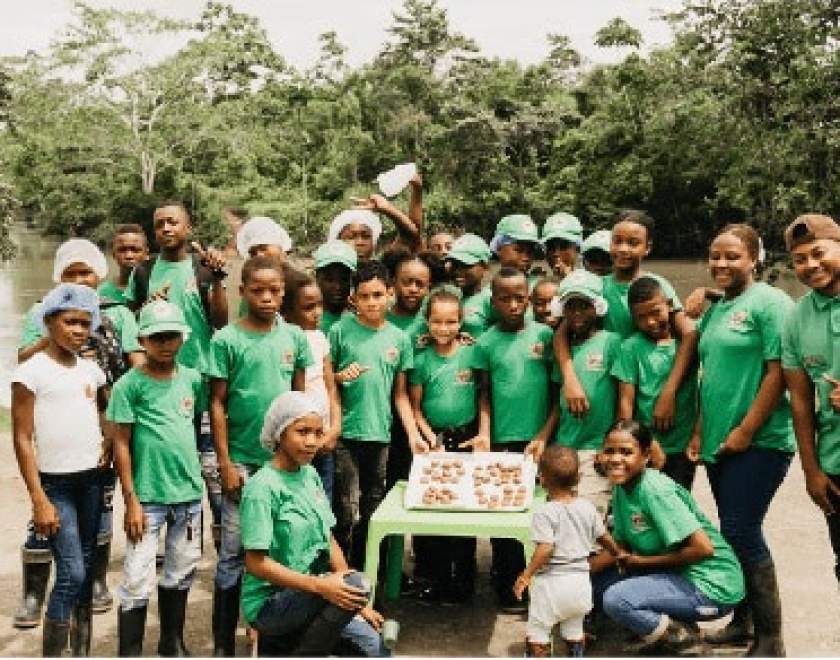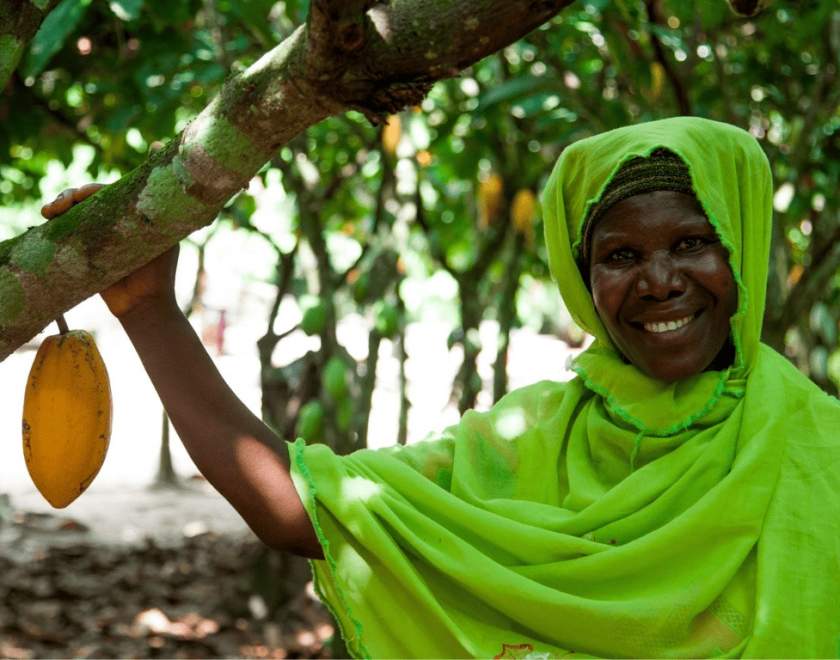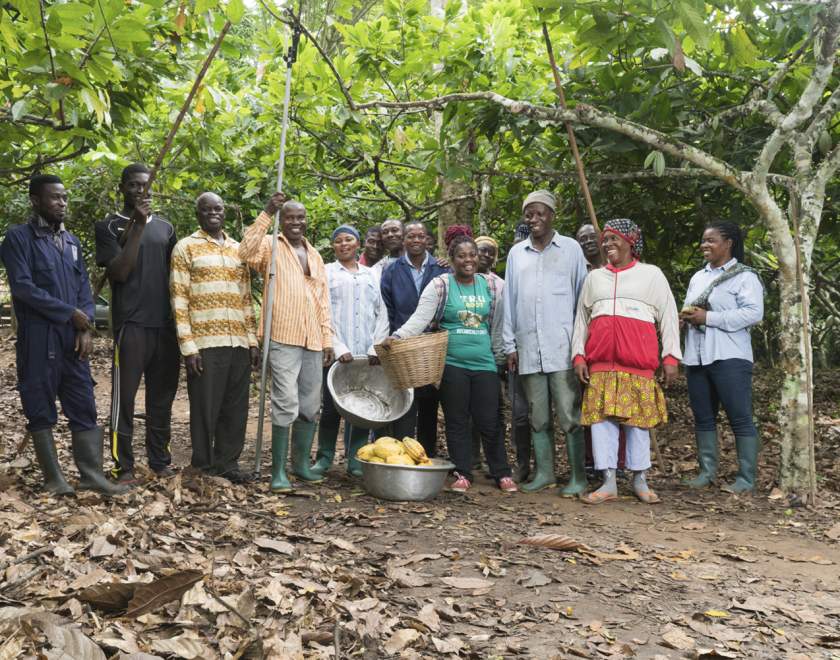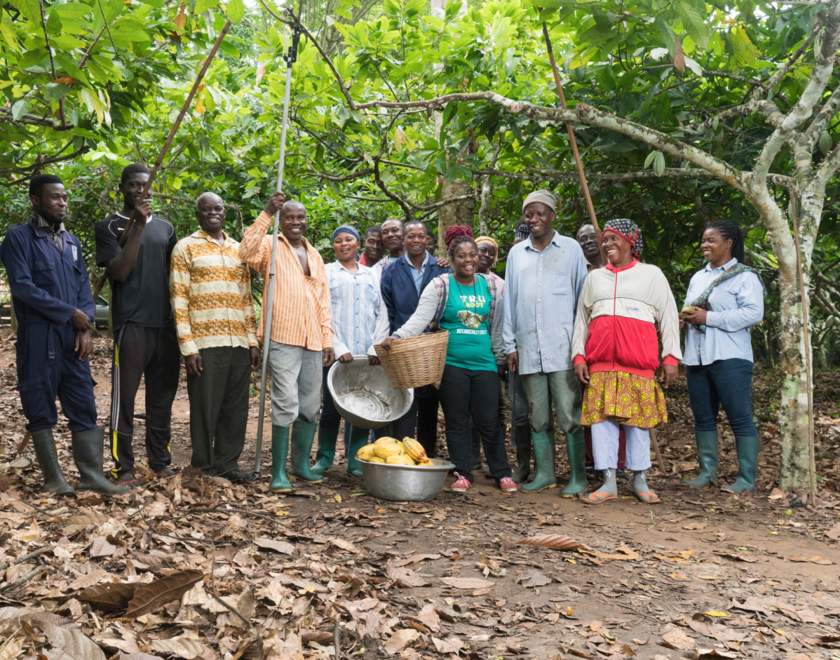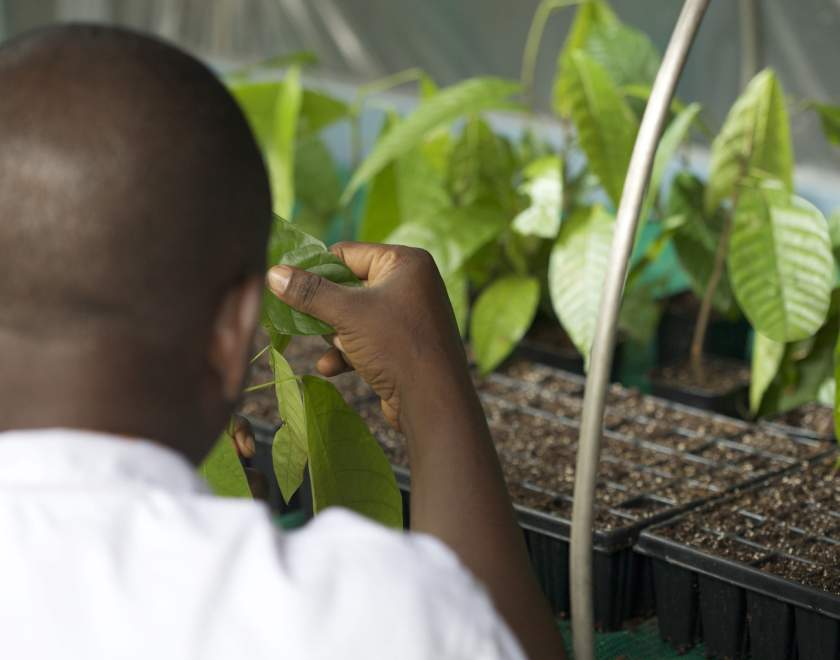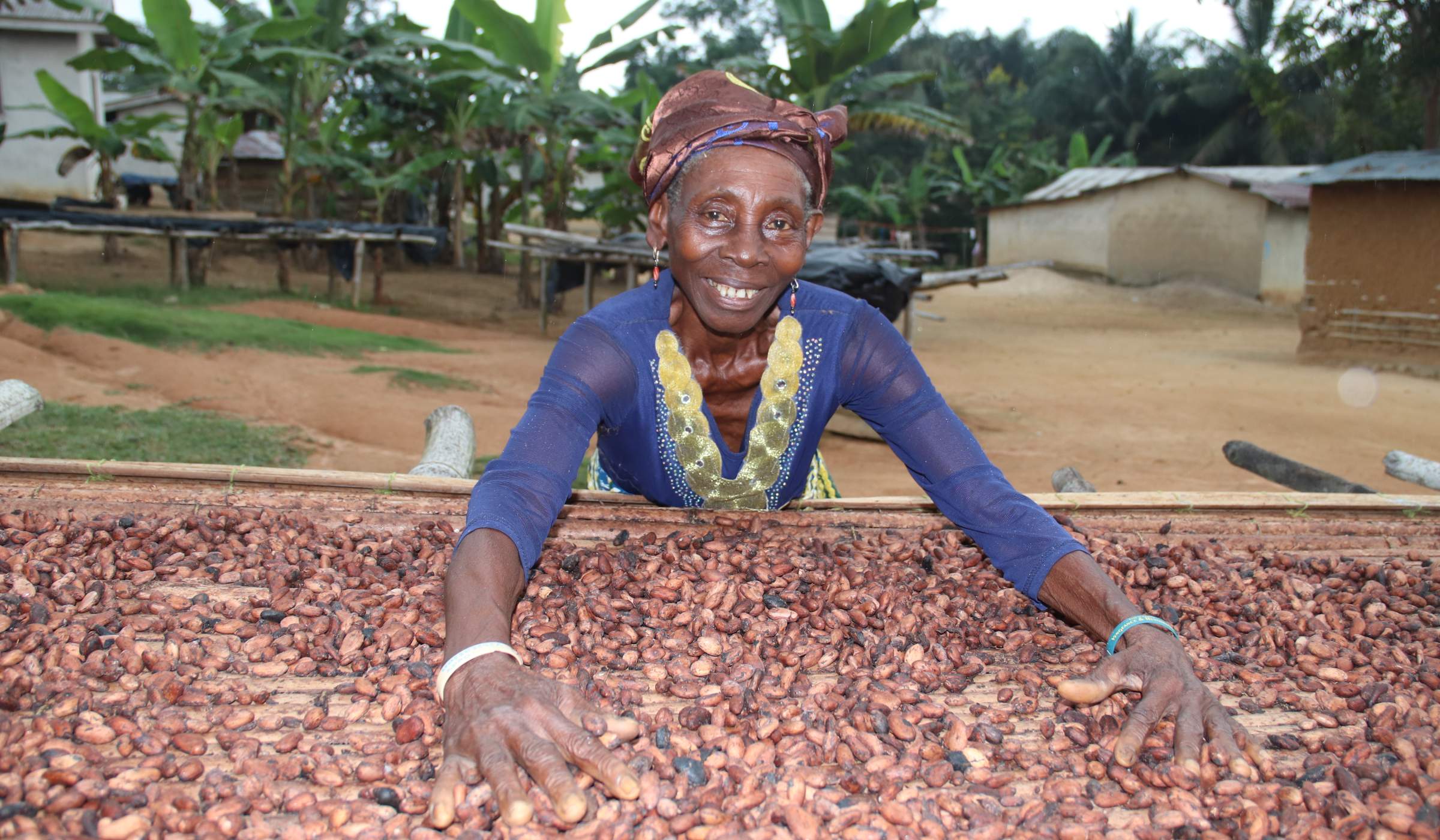
The VSLA Plus Project Initiative supports Ghanaian cocoa farmers, with CARE’s VSLA model and gender training empowering women in decision-making.
Madam Adjoa Adiza farms about 10 acres of cocoa in Jamra, which is in the Asikuma-Odoben-Brakwa district of Ghana. With her children grown and out, the 74-year-old widow does all the farm work herself – weeding, harvesting and drying.
It’s hard work, and she sometimes hires additional labour to help. But paying workers and buying farm inputs, like pesticides, is expensive. In the past she has had to take out high-interest loans to pay for it.
But in 2023, Madam Adiza found a better financing route through a local village savings and loan association (VSLA), part of a project funded by the International Commodities Exchange (ICE), facilitated by World Cocoa Foundation (WCF) and implemented by CARE International in Ghana. VSLAs are community-led financing groups where approximately 15 to 25 members can learn about financial fundamentals, safely and securely save funds and take our short-term loans from the collective pool for farm operations, other forms of entrepreneurship or emergencies.
“I see the VSLA as the best group of all,” she said. “I don’t pay high interest; even with the little interest I pay, I have my share at the end of the cycle when we conduct share-out meetings. The VSLA is a reliable source of financial support to my cocoa farming business.”
Financial training plus gender dialogue leads to greater impact
The VSLA Plus Project Initiative (VPPI) that would eventually benefit cocoa farmers like Madam Adiza started in 2022 when ICE was looking to fund finance-related community efforts in cocoa-growing regions. ICE reached out to WCF to help develop a program and connect to the right partners. WCF had recently concluded a successful VSLA implementation project in Côte d’Ivoire with several partners, so the impact of the model was clear. The two organisations decided to work in Ghana and focus on the cocoa supply chains of WCF members.
ECOM and Ofi were both interested in the VSLA work and recommended partnering with CARE to implement the program in communities. CARE has long used a VSLA model supplemented by gender training with both men and women to help women have more of a voice in household and community decision-making.
“We were excited to partner with WCF and its members to help implement VSLAs in Ghana’s cocoa-growing communities,” says Mercy Sika Krow, Programme Team Leader from CARE Ghana. “When combined with gender discussions, these models have been shown to improve the well-being of all household members, including helping children and women of reproductive age get better access to the nutrition and education they need.”
With US$ 100,000 in funding from ICE, the VPPI project ran from November 2022 to October 2024. In total, 41 VSLAs were implemented across 24 communities in Ghana, with a total membership of 1,132 people. All groups have saved US$ 176,122 of which US$ 90,979 has been disbursed as loans. Women made up 84% of these participants. In addition to saving money and learning financial fundamentals, female (933) and male (182) participants joined in gender dialogues to help resolve issues and improve family dynamics in the home.
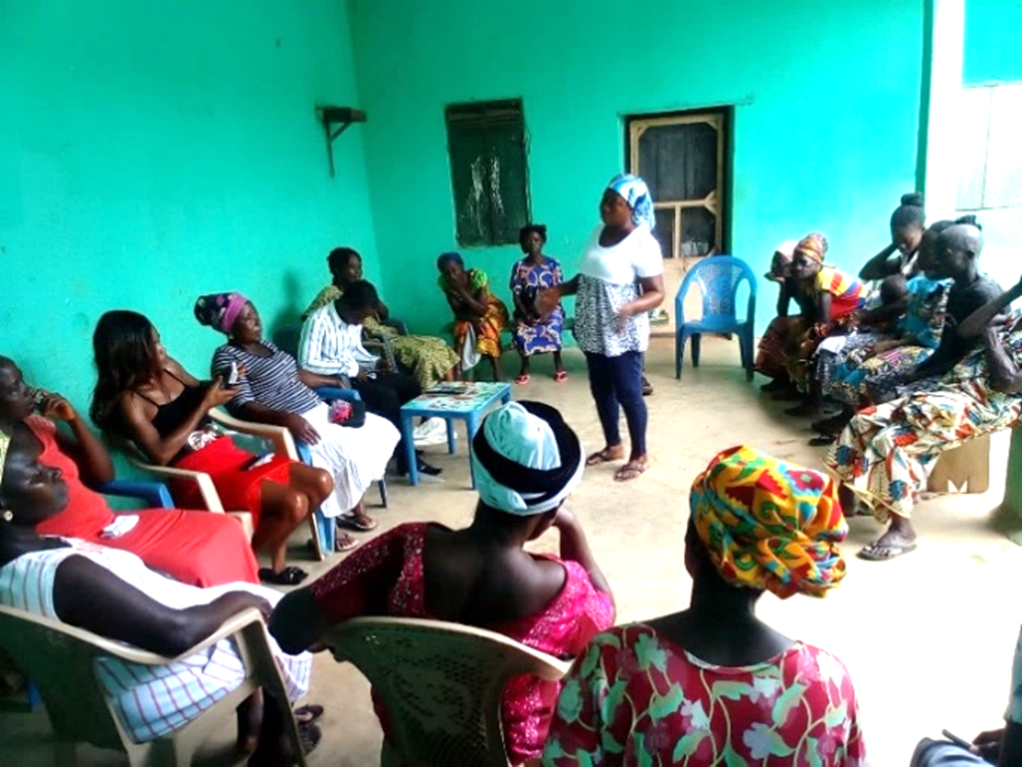
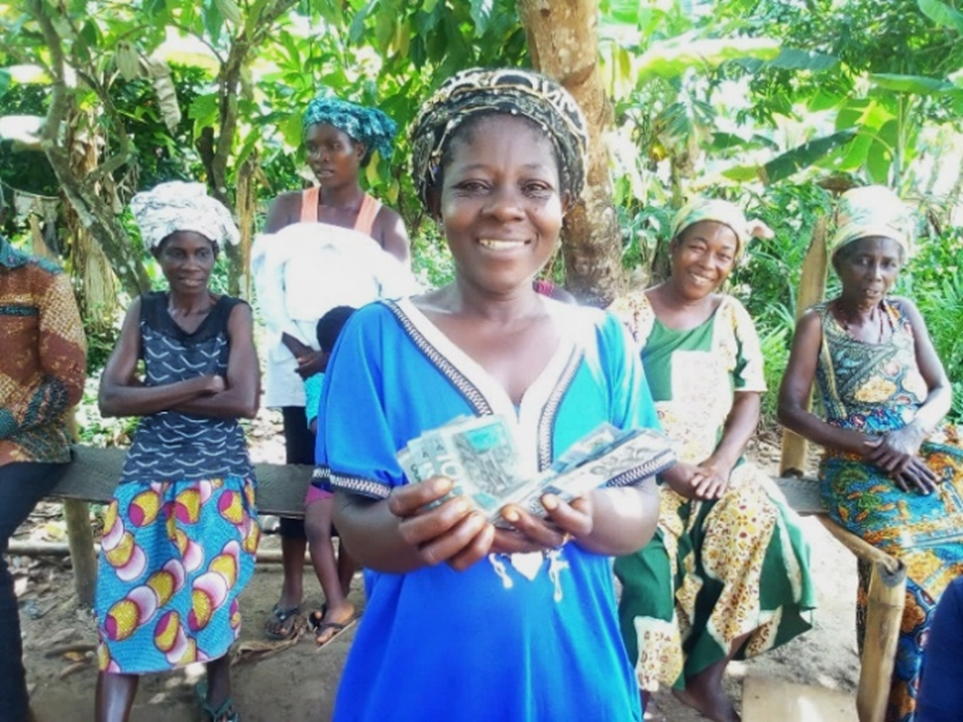
Prisca Ayema is WCF’s Social Development Manager. Based in neighbouring Côte d’Ivoire, she visited some of the Ghanaian communities where VPPI was implemented.
“Despite the short implementation period, the partners were able to achieve and exceed the targets we agreed upon. I was excited to see the success, especially on the gender aspects. There’s strong engagement, and women and men share the same vision,” Ayema said.
Stronger dynamics at home
For many households, the change in the dynamic following VSLA activities has created a new harmony that makes everyone happier. Men and women alike are benefiting.
Abraham Ackom is a 28-year-old cocoa farmer and mason in Jamra whose wife recommended he join the local VSLA. Previously, he did not participate in household chores because of the cultural perception that these activities are women’s responsibility.
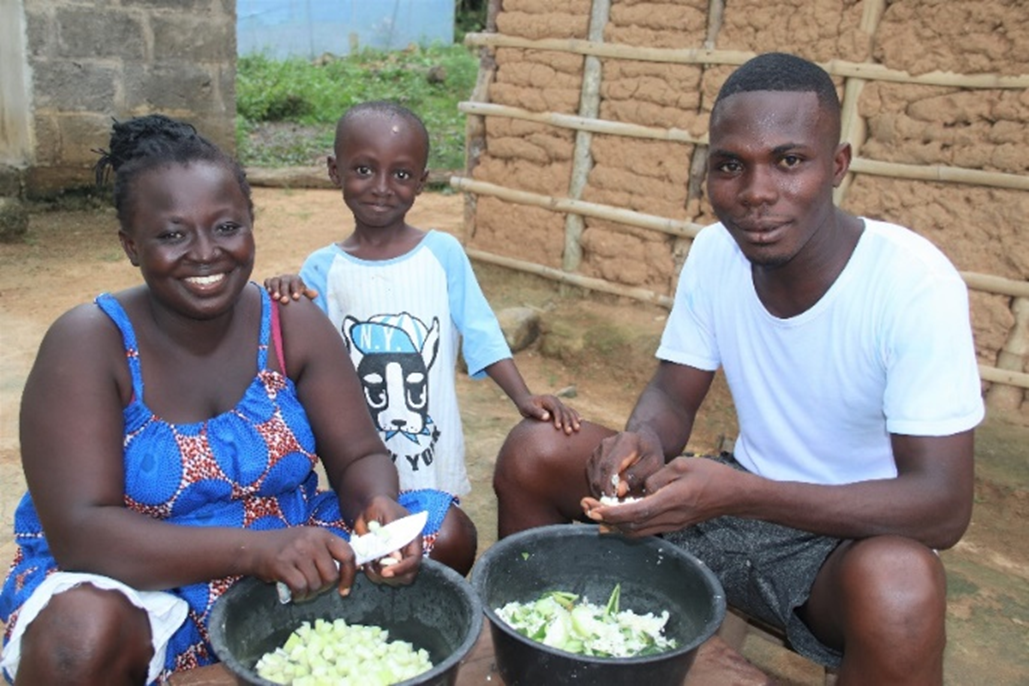
A few weeks after joining the VSLA, a CARE field officer held a gender dialogue about how cultural perceptions can affect the household and the community at large.
“This made me change the way I am thinking,” Ackom said. “I have decided to project myself as an example to educate my colleagues on the gender concepts so that they too can emulate.”
As he has gotten fully involved in household activities, the mood has become much more positive at home.
“The love between me and my wife has deepened, there has been much happiness, stress relief and reduction of the burden on my wife,” he said. “I have a happy home.”
